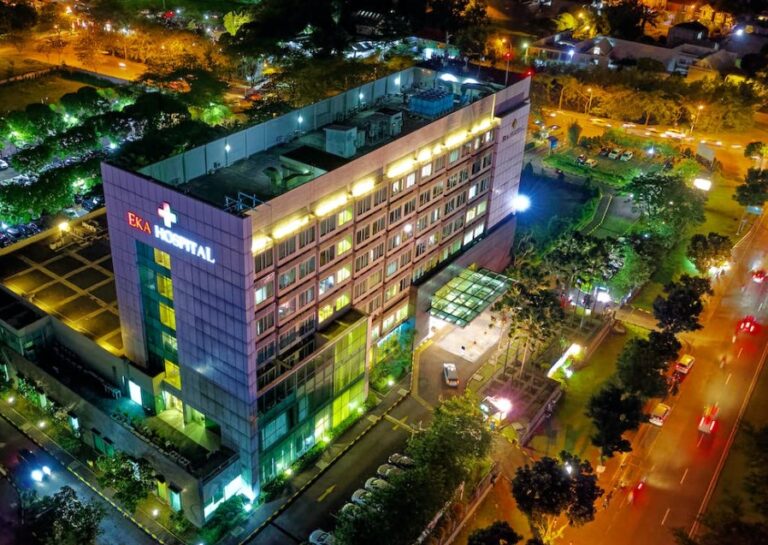The inexorable advance of technology is causing a dramatic change in the healthcare industry. Emerging technologies are transforming healthcare delivery, accessibility, and personalization with game-changing diagnostic tools and game-changing treatment techniques.
Patients and healthcare providers alike will have additional options to combat environmental degradation and diseases that were thought to have no treatment thanks to this technology’s incorporation into medicinal applications. This article is a look into 6 emerging technologies that are shaping the healthcare system.
Table of Contents
The 6 emerging technologies in healthcare
1. Artificial intelligence in diagnostics
With the use of machine learning algorithms, AI has revolutionized healthcare diagnostics by rapidly and accurately analyzing massive information. Artificial intelligence (AI) is a game-changer in the healthcare industry, with potential uses ranging from improving diagnostic procedures to discovering new pharmaceuticals and analysing patient data.
A new era is dawning in medical imaging – the backbone of diagnosis – thanks to artificial intelligence’s ability to spot abnormalities and minute patterns in X-rays, CT scans, and MRIs. Although it did not give a complete view of the organ tissue, biopsy was the major method for diagnosing cancer for decades.
The diagnostic and therapeutic potential of digital scans for early disease detection is enormous, with the potential to transform the way we see and deal with diseases as diverse as cancer and neurological problems.
2. Telehealth and remote patient monitoring
More than just a convenience, telemedicine has emerged as a vital cog in the wheel of international healthcare. The COVID-19 epidemic has contributed to the rise in popularity of virtual consultations and other forms of remote patient monitoring.
These advancements allow doctors to keep tabs on their patients no matter where they are, help them cope with long-term health issues, and intervene quickly when needed, ushering in a new age of patient-centered care.
Security, location services, teleconferencing, appointment scheduling, encrypted messaging, healthcare provider assessments, patient records, and wearable connection are other telehealth features. Plus, with the advent of remote ultrasonography and data exchange for virtual collaboration, primary care clinics and facilities can function as remote hospitals.
3. Blockchain for healthcare data security
In this day and age, where data is of the utmost importance, blockchain technology is emerging as a guiding light for the protection of healthcare information. Due to the fact that it is decentralized and transparent, it guarantees the confidentiality and integrity of patient information.
Blockchain’s promise to minimize fraud, promote interoperability, and build a secure, immutable ledger for medical records is poised to revolutionize the way healthcare institutions manage sensitive information, thereby promoting more confidence among patients and stakeholders. Blockchain’s interoperability with other technologies is also expected to improve.
4. 3D printing in healthcare industry
New opportunities in individualised treatment are opening up as 3D printing and healthcare intersect. The potential for 3D-printed tissues and organs, individualised implants, and prosthetics are all examples of how this technology is reshaping healthcare.
External prosthesis, cranial or orthopaedic implants, and customised airway stents are some of the medical devices made possible by 3D printing. On the other hand, it has proven useful for complex open-heart surgeries and surgical planning.
Surgical planning and medical device innovation enter a new era with the ability to design detailed, personalised structures, which improve patient outcomes.
5. Internet of Things (IoT) in healthcare
A healthcare IT infrastructure that makes use of the Internet of Things (IoT) to improve patient care, tracking, and administration is a web of networked sensors, devices, and systems that exchange information and coordinate patient care. Internet of Things (IoT) wearables, including fitness trackers, smartwatches, and medical wearables, record and measure vital signs in real time. Among the many indicators that these devices may monitor are heart rate, activity levels, and sleep duration.
In order for healthcare providers to keep tabs on their patients’ well-being even when they are not in a typical clinical environment, the Internet of Things (IoT) is crucial. Internet of Things (IoT) devices allow for the real-time transmission of critical data to healthcare provider. Such as blood pressure monitors, glucose metres, and pulse oximeters.
Infusion pumps, pacemakers, and insulin pumps are just a few examples of the medical devices that have integrated into the Internet of Things. These gadgets can send information straight to doctors, who can then use it to fine-tune patients’ treatments and make them safer.
6. Precision medicine and genomics
Genomic and molecular medicine advancements are guiding healthcare towards a personalised approach. The secret to maximising therapeutic efficiency while minimising negative effects lies in precision medicine. Which involves customising therapies according to an individual’s genetic composition. In addition to the patient’s medical history, it incorporates lifestyle characteristics, environmental exposures, and other clinical data to build a complete profile.
New targeted treatment options are emerging as a result of the human genome project. Which is changing the face of cancer, uncommon diseases, and other fields. Accurate molecular tumour characterization is the goal of precision oncology, which makes use of genomic data. This paves the way for the determination of certain genetic alterations that fuel cancer progression, which in turn directs the choice of tailored treatments for particular patients.
The identification of genetic variants linked to hereditary diseases relies heavily on genomic information. For people who have a history of hereditary diseases in their family, this information allows for earlier diagnosis, genetic counselling, and individualised approaches to treatment.
Enhancing the well-being of the world
In the future of healthcare, these six emerging technologies promise a future in which compassion and innovation will come together.
They are beacons of hope. As we continue on this path of transformation, the convergence of these technologies has the potential to usher in a new era in which healthcare is not merely a reaction to illness but rather a proactive, individualized, and holistic endeavor that is centered on improving the well-being of individuals as well as communities.
Read also: The 10 most technologically advanced hospitals worldwide












